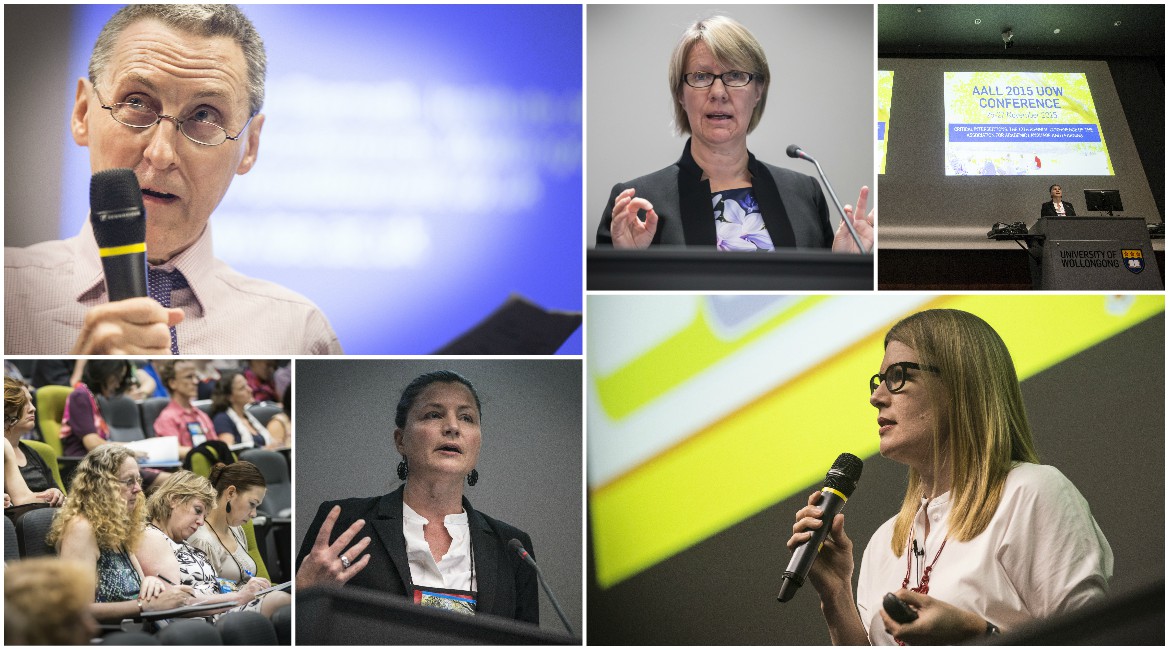November 27, 2015
Conference focuses on rethinking university curriculum and learning
More than 200 higher education experts from around Australia descended on UOW this week (25-27 November) for the biennial Association for Academic Language and Learning Conference.
The conference discussed the future of higher education curriculum and learning in Australia.
Dr Alisa Percy, Head of Learning Development at UOW, said UOW was pleased to lead the discussion on how we can improve tertiary learning in Australia.
"This conference encourages integrative thinking across traditional organisational boundaries to promote ethical, scalable and sustainable improvements to higher education curriculum, assessment and pedagogy."
Dr Ruth Walker, Senior Lecturer of Learning, Teaching & Curriculum at UOW, said academic language and learning is fundamental to the business of universities, and while often under-sung, is crucial to both student success in their studies and maintaining academic standards.
“For more than a decade, academic language and learning advisors have worked behind the scenes to support student learning and improve academic standards. In the current climate of higher education, their expertise about effective assessment design, scaffolded learning activities and the importance of clarity about student learning outcomes is more important than ever."

Emeritus Professor Ronald Barnett from the Institute of Education, London (where he was both Dean of Professional Development and subsequently Pro-Director for Longer Term Strategy) was one of the keynote speakers at the conference.
The author of 21 books on higher education, Professor Barnett discussed his thoughts on advancing the idea of students as ‘global citizens’ and ‘ecological graduates’.
Associate Professor Cath Ellis (pictured above), Associate Dean (Education) for the Faculty of Arts and Social Sciences at the University of New South Wales, discussed the shocking rise of contract cheating sites that offer customised writing of assessment tasks, while also advocating for the thoughtful use of learning analytics to track student performance and give immediate feedback on assessment tasks.
With the advent of electronic marking and electronic assessment management, new data sets are becoming available that can be utilised to inform educative interventions and curriculum design decisions.
Professor Ellis believes Australian universities should be working together to explore the future potential that collaborative approaches to designing and implementing, and then analysing and acting on an assessment analytics strategy has in terms of both the efficacy and efficiency of teaching, learning, and student support.
Dr Kate Bowles, from UOW’s Faculty of Law, Humanities and the Arts, is the former Head of Educational Design at UOW. She discussed ways in which we can rethink curriculum so that it aligns with the aspirations of the individual learner.
:format(jpg)/prod01/channel_3/assets/live-migration/www/images/content/groups/public/web/media/documents/mm/uow206213.jpg)